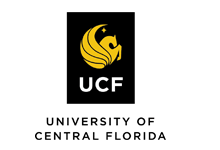Abstract
The effects of COVID-19 on the market transformation of the theme park industry has been significant in the short term because of travel restrictions. Challenges, impacts, responses, and strategies might vary from one region to another and even from one theme park to another. However, it can be assumed that domestic travel will continue to have an effect on the theme park industry during the months to come and likely beyond the pandemic. In this context, the “staycation” is becoming a booming trend in the leisure, entertainment, and tourism industry, creating new, current, and future unexpected economic winners and losers. Nevertheless, to what extent this reactive travel behavior under the pandemic will become permanent in the mid- and long-term is rather uncertain. In any case, the attraction of domestic visitors to theme parks as a staycation holidaying practice needs to be connected with the engagement of parks in the ongoing process of societal lifestyle changes shaping customers’ decision-making. Whether this strategy could be useful to a particular theme park remains relatively unknown. In any case, more research is needed on the long-term effects of the pandemic in the theme park industry considering the characteristics of specific theme parks and their locational, contextual, human agency, and path dependency issues.
Creative Commons License

This work is licensed under a Creative Commons Attribution-NonCommercial-No Derivative Works 4.0 International License.
Recommended Citation
Anton Clavé, Salvador
(2022)
"Theme parks, staycation practices, and COVID-19: opportunities and uncertainties,"
Journal of Themed Experience and Attractions Studies: Vol. 2:
Iss.
1, Article 6.
Available at:
https://stars.library.ucf.edu/jteas/vol2/iss1/6
Included in
Environmental Design Commons, Interactive Arts Commons, Operations Research, Systems Engineering and Industrial Engineering Commons, Theatre and Performance Studies Commons




